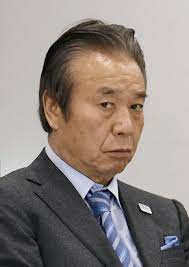Loading
Search
▼ Olympic Scandals Put Marketing Giant Dentsu’s Business In Spotlight
- Category:Other
Allegations of corruption in Olympic sponsorships involving former Densu director Haruyuki Takahashi have put the firm’s unrelenting hold on Japan’s sports marketing sector in the spotlight.
Through its role as exclusive agent, Dentsu achieved a record nearly 370 billion yen ($2.8 billion) in marketing revenue for the Tokyo Olympic and Paralympic Organizing Committee, where Takahashi was an executive.
Prosecutors are now investigating a suspicious flow of funds from Takahashi and Aoki Holdings Inc. to one of his companies.
Aoki is one of Dentsu’s official Olympic sponsors after being announced as the exclusive marketing agent of the Tokyo Games in April 2014.
The press release that accompanied the announcement included an internal marketing program target of 150 billion yen, not far short of the record 165.6 billion yen brought in by the organizers of the 2008 Beijing Olympics.
It was also irregular to release the target figure at the time given that a firm had not yet signed on as a local Olympic partner. Behind these figures, however, was a Dentsu guarantee that sponsorship income would reach a certain minimum amount.
Dentsu approaches event organizers and guarantees a minimum amount of sponsorship revenue, a source with knowledge of the matter said. If that much revenue fails to materialize, Dentsu promises to make up the difference.
However, Dentsu’s percentage of total fees increases after revenue exceeds the guaranteed minimum threshold. Dentsu’s bid to Tokyo Olympic organizers is believed to include a guarantee of around 150 billion yen.
Dentsu can operate this way because of its ability to bring in money from the wide network of companies it operates.
“Only Dentsu can guarantee such high revenue and delivery. Dentsu has developed deep relationships with many listed companies,” said a former top executive of the Tokyo Games organizing committee.
So, it is no surprise that Dentsu has become the exclusive agent of many international events and sports federations.
“We can present figures to clients that other companies can’t come close to matching,” says a Dentsu employee.
Although several companies competed for the job as exclusive marketing agent for the Tokyo Games, none other than Dentsu “had the slightest chance,” said a source with knowledge of the matter.
While the use of public funds is closely monitored, Dentsu’s ability to secure the highest amount of private funding means that for the organizing committee, firm selection is a no-brainer.
Dentsu has listed 15 companies that have each pledged about 15 billion yen to become Tier 1 “gold partners.” Even the organizers of the 2012 London Olympics, successful in terms of revenue and spending, had only seven companies sign up as top-level sponsors worth about 5 billion yen.
In the end, Tokyo’s sponsorship revenue was more than double the minimum guarantee Dentsu promised.
But Dentsu’s major sponsorship has been with unexpected associations, starting with Tokyo’s bid to secure the Games.
In March 2020, Reuters reported that Takahashi received $8.2 million from the Tokyo Olympic bid committee to line up its sponsors and lobby former International Olympic Committee member, the late Lamine Diack, who was later investigated for corruption.
That same investigation implicated the head of the bid committee, former Japanese Olympic Committee president Tsunekazu Takeda, over a $2 million “consultative” payment to a Singapore company he said Densu had recommended.
Former organizing committee staff members claim they pressured the committee’s leadership into thinking that working with Dentsu was the only way to get sponsors.
Going forward, more attention is sure to be paid to how sponsors are selected. But the simple-minded way the business has been run thus far leads former committee workers to believe, “If it wasn’t for Dentsu, we wouldn’t have the Olympics.”
- August 15, 2022
- Comment (0)
- Trackback(0)


